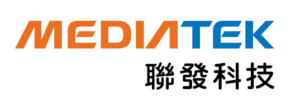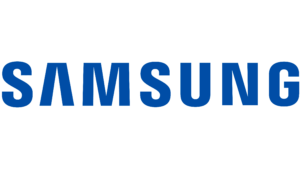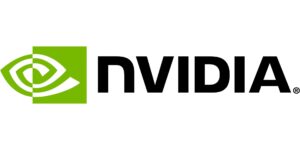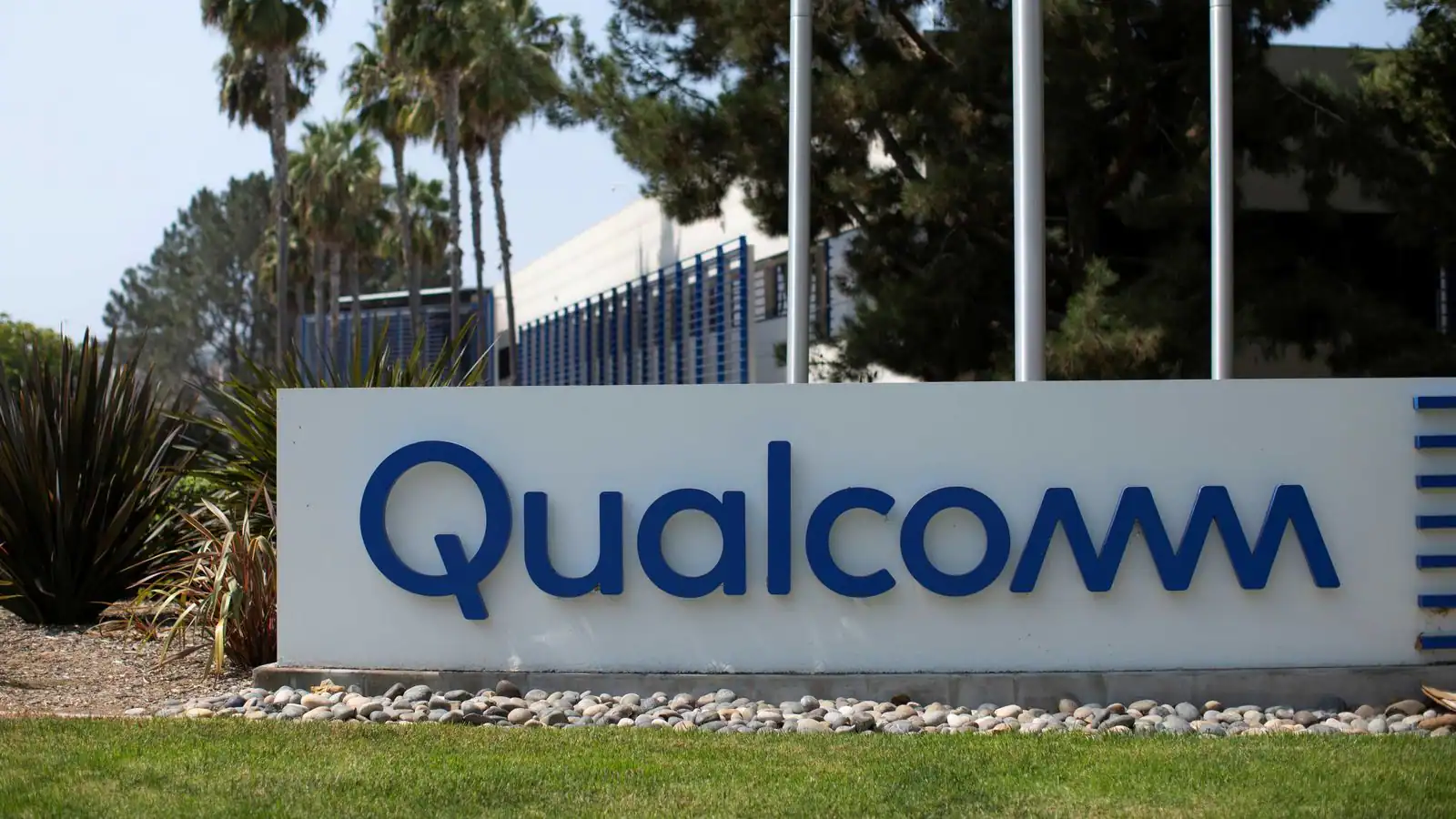Qualcomm is a leading provider of wireless communications technologies and solutions, with a strong focus on innovation and advancing the capabilities of mobile devices. Founded in 1985 by Irwin Jacobs and Andrew Viterbi, the company has since grown to become one of the largest players in the global telecommunications industry. Headquartered in San Diego, California, Qualcomm has a diverse portfolio of products and services that cater to a wide range of customers, from smartphone manufacturers to automotive companies, and its technology is used in over 130 countries around the world.

Qualcomm’s success can be attributed to its commitment to research and development, as well as its ability to identify emerging trends and opportunities in the market. The company was instrumental in developing CDMA (Code Division Multiple Access) technology, which revolutionized the way mobile phones communicate with cellular networks. Today, Qualcomm continues to push the boundaries of what is possible with mobile technology through its work in areas such as 5G, artificial intelligence, and the Internet of Things (IoT).
One of Qualcomm’s most significant contributions to the tech industry is its Snapdragon line of processors, which are used in many high-end smartphones. These chipsets offer exceptional performance, power efficiency, and advanced features like augmented reality, virtual reality, and machine learning. Additionally, Qualcomm’s modem technology enables fast and reliable connectivity across different generations of wireless networks, ensuring that users stay connected no matter where they are.
Beyond its hardware and software solutions, Qualcomm also provides a range of services to help its partners bring their products to market faster and more efficiently. From reference designs and technical support to testing and certification, Qualcomm works closely with its customers to ensure that their devices meet the highest standards of quality and performance.
In recent years, Qualcomm has expanded its reach beyond traditional mobile devices, partnering with automakers to develop cutting-edge infotainment systems and driver assistance technologies. Its acquisition of NXP Semiconductors in 2017 further strengthened its position in the automotive space, allowing it to provide comprehensive solutions for vehicle safety, security, and connectivity.
Despite facing intense competition and regulatory challenges, Qualcomm remains focused on driving innovation and pushing the limits of what is possible with mobile technology. With a talented team of engineers and researchers, a robust portfolio of patents, and a proven track record of successful collaborations, Qualcomm is poised to continue shaping the future of communication and mobility for years to come.
Top Competitors and Alternatives of Qualcomm
1. Intel Corporation

Intel and Qualcomm are major competitors in the semiconductor industry, particularly in the market for mobile processors and chipsets. Both companies design and manufacture a variety of semiconductor products, including processors for mobile devices, wireless communication technologies, and other integrated circuits. The competition between Intel and Qualcomm is most evident in the mobile chipset market, where they vie for dominance in providing processors for smartphones, tablets, and other mobile devices. Both companies strive to innovate in terms of performance, power efficiency, and connectivity features to capture market share and secure partnerships with device manufacturers.
In addition to the mobile market, Intel and Qualcomm compete in other areas of the semiconductor industry, such as data center processors and Internet of Things (IoT) devices. In data centers, Intel has historically been a dominant player, providing processors and other hardware components for servers. Qualcomm has been making strides in this space, aiming to challenge Intel’s position with its server processors. In the IoT segment, where a variety of connected devices require specialized chips, both companies compete to provide solutions that meet the growing demand for connectivity and processing power.
Here’s the information in tabular format:
| Aspect | Intel | Qualcomm |
|---|---|---|
| Market Focus | Diverse, including PCs, servers, and IoT devices. | Primarily mobile processors and wireless communication. |
| Mobile Chipsets | Competition in providing processors for smartphones and tablets. | A major player in mobile chipsets, especially in the wireless communication domain. |
| Innovation in terms of performance, power efficiency, and connectivity. | Striving to capture market share and secure partnerships with device manufacturers. | |
| Data Center Processors | Historically dominant in providing processors for data center servers. | Emerging as a competitor in the data center space with server processors. |
| Faces competition as Qualcomm aims to challenge Intel’s position. | Competes in providing solutions for the growing demand in data center processing. | |
| Internet of Things (IoT) | Provides chips for various IoT devices. | Competes in the IoT segment, offering specialized chips for connected devices. |
| Competition in meeting the demand for connectivity and processing power. | Innovating to address the evolving requirements of the IoT market. |
2. Broadcom Inc.

Broadcom Inc. is a direct competitor of Qualcomm in the semiconductor industry, particularly in the realm of wireless communication technologies and connectivity solutions. Both companies are major players in designing and manufacturing semiconductor products, and their competition is most pronounced in the market for mobile chipsets. Broadcom and Qualcomm vie for dominance in providing processors and integrated circuits for mobile devices, including smartphones and tablets. The competition centers around innovation in areas such as 5G connectivity, power efficiency, and overall performance, as both companies seek to secure partnerships with device manufacturers and capitalize on the growing demand for advanced mobile technologies.
In addition to mobile chipsets, Broadcom and Qualcomm compete in various other segments of the semiconductor market, including networking solutions and broadband technologies. Broadcom, for instance, is known for its expertise in providing networking and connectivity solutions for data centers, enterprise networking, and telecommunications. The rivalry extends to offering solutions for wired and wireless communications, as well as technologies related to broadband access. Both companies continuously invest in research and development to stay at the forefront of technological advancements, with an emphasis on addressing the connectivity needs of modern devices and networks.
Here’s the information in tabular format:
| Aspect | Broadcom Inc. | Qualcomm |
|---|---|---|
| Market Focus | Diverse, including networking, semiconductors, and broadband solutions. | Primarily mobile chipsets and wireless communication technologies. |
| Mobile Chipsets | Direct competition in providing processors for mobile devices. | Competing for partnerships with device manufacturers and innovation in 5G connectivity. |
| Emphasis on 5G connectivity, power efficiency, and overall performance. | Striving to secure market share in the growing mobile technologies space. | |
| Networking Solutions | Known for providing networking and connectivity solutions for data centers, enterprise, and telecommunications. | Also competes in networking solutions, offering wired and wireless communication technologies. |
| Rivalry in addressing the connectivity needs of modern devices and networks. | Competes in broadband access technologies and solutions. | |
| Broadband Technologies | Offers solutions in the broadband access technology segment. | Competes in broadband technologies and solutions for various applications. |
| Competition in providing advanced technologies for broadband access. | Striving to meet the evolving requirements of broadband connectivity. |
3. MediaTek Inc.

MediaTek Inc. is a direct competitor of Qualcomm, particularly in the market for mobile chipsets and wireless communication technologies. Both companies are key players in the semiconductor industry, and their competition is most evident in the domain of providing processors for mobile devices such as smartphones and tablets. MediaTek competes with Qualcomm in offering feature-rich, cost-effective mobile chipsets that cater to a broad range of devices. The rivalry centers around performance, power efficiency, and the integration of advanced features, with both companies vying for partnerships with device manufacturers and seeking to capture market share in the competitive mobile technologies sector.
Apart from mobile chipsets, MediaTek and Qualcomm also compete in other segments of the semiconductor market, including wireless connectivity solutions and the Internet of Things (IoT). MediaTek, like Qualcomm, is actively involved in providing wireless communication technologies and solutions for various applications. The competition extends to addressing the connectivity needs of modern devices and networks, with a focus on innovation in wireless technologies. Here’s the information in tabular format:
| Aspect | MediaTek Inc. | Qualcomm |
|---|---|---|
| Market Focus | Primarily mobile chipsets and wireless technologies. | Diverse, including mobile chipsets, wireless communication, and IoT. |
| Mobile Chipsets | Direct competition in providing processors for mobile devices. | Rivalry in offering feature-rich, cost-effective mobile chipsets. |
| Focus on performance, power efficiency, and integration of advanced features. | Competes for partnerships with device manufacturers and market share. | |
| Wireless Connectivity | Provides wireless communication technologies and solutions. | Competes in wireless connectivity solutions for various applications. |
| Rivalry in addressing the connectivity needs of modern devices and networks. | Competition extends to innovation in wireless technologies. | |
| Internet of Things (IoT) | Active involvement in providing solutions for IoT devices. | Also competes in IoT, offering solutions for connected devices. |
| Competition in providing specialized chips for the growing IoT market. | Striving to meet the evolving requirements of the IoT segment. |
4. Samsung Electronics Co., Ltd.

Samsung Electronics Co. Ltd. is a significant competitor of Qualcomm, engaging in intense rivalry across various segments of the electronics and semiconductor industry. While Samsung is a diversified conglomerate with involvement in consumer electronics, mobile devices, and semiconductor manufacturing, the direct competition with Qualcomm is most evident in the market for mobile chipsets and wireless communication technologies. Both companies design and produce processors for smartphones, tablets, and other mobile devices, making the competition fierce in terms of innovation, performance, and the integration of advanced features. Both Qualcomm and Samsung strive to set industry standards, secure partnerships with device manufacturers, and capture market share in the ever-evolving mobile technologies sector.
Beyond mobile chipsets, Samsung and Qualcomm compete in other semiconductor-related areas, such as the development of advanced processors and technologies for diverse applications. Samsung, with its semiconductor manufacturing capabilities, is a formidable competitor in providing memory chips, application processors, and other semiconductor components. The competition extends to areas like 5G technologies, where both companies are actively involved in pioneering advancements. Moreover, Samsung’s presence in consumer electronics, including smartphones, TVs, and home appliances, adds another dimension to the competitive landscape. Here’s the information in tabular format:
| Aspect | Samsung Electronics Co. Ltd. | Qualcomm |
|---|---|---|
| Market Focus | Diverse, including consumer electronics, mobile devices, and semiconductors. | Primarily mobile chipsets, wireless communication, and IoT. |
| Mobile Chipsets | Direct competition in providing processors for smartphones and tablets. | Intense rivalry in innovation, performance, and integration of advanced features. |
| Both strive to set industry standards and capture market share. | Competes for partnerships with device manufacturers in the mobile technologies sector. | |
| Semiconductor Manufacturing | Involved in semiconductor manufacturing, providing memory chips and processors. | Also competes in semiconductor manufacturing, producing application processors and components. |
| Competition extends to providing advanced processors and technologies. | Rivalry in developing cutting-edge semiconductor solutions for diverse applications. | |
| 5G Technologies | Active involvement in pioneering advancements in 5G technologies. | Engaged in 5G technologies, striving to set standards and lead in wireless communication. |
| Competition in the development of 5G solutions for mobile communication. | Rivalry extends to capturing a share of the growing 5G market. | |
| Consumer Electronics | Presence in various consumer electronics, including smartphones, TVs, and home appliances. | Focused on mobile devices, IoT, and wireless communication technologies. |
| Adds another dimension to the competitive landscape. | Competes indirectly in consumer electronics, particularly in the mobile devices sector. |
5. NVIDIA Corporation

NVIDIA Corporation competes directly with Qualcomm in various segments of the semiconductor industry, particularly in the domains of graphics processing units (GPUs), artificial intelligence (AI), and mobile processors.
While both companies have distinct areas of specialization, the competition is most evident in the market for mobile processors, where Qualcomm and NVIDIA vie for a share of the rapidly evolving mobile technologies sector. NVIDIA’s Tegra mobile processors, focusing on graphics capabilities and energy efficiency, compete with Qualcomm’s Snapdragon processors, which are renowned for their performance, connectivity features, and integration of advanced technologies. The rivalry extends to capturing partnerships with device manufacturers and setting industry standards in the highly competitive mobile chipset market.
In addition to mobile processors, NVIDIA and Qualcomm also compete in AI technologies and the development of GPUs for various applications. NVIDIA, with its expertise in GPUs and AI, has made significant strides in providing solutions for data centers, gaming, and automotive applications. The competition in this space involves pushing the boundaries of GPU performance and AI capabilities, as both companies seek to address the increasing demand for high-performance computing across diverse industries. Here’s the information in tabular format:
| Aspect | NVIDIA Corporation | Qualcomm |
|---|---|---|
| Market Focus | GPUs, AI technologies, and mobile processors. | Primarily mobile processors, wireless communication, and IoT. |
| Mobile Processors | Direct competition in providing processors for mobile devices. | Rivalry in innovation, performance, and integration of advanced features. |
| NVIDIA Tegra processors focus on graphics and energy efficiency. | Qualcomm Snapdragon processors emphasize performance and connectivity. | |
| Competes for partnerships with device manufacturers and market share. | Striving to set industry standards and capture a share of the mobile chipset market. | |
| AI Technologies | Expertise in GPUs and AI, providing solutions for data centers, gaming, and automotive. | Active involvement in AI technologies, seeking to address the demand for high-performance computing. |
| Competition in pushing the boundaries of GPU performance and AI capabilities. | Rivalry extends to providing cutting-edge solutions for diverse AI applications. | |
| Connectivity Technologies | Focus on graphics and AI, less emphasis on wireless communication technologies. | Strong presence in wireless communication technologies, particularly in mobile devices. |
| Differentiated competition based on areas of specialization. | Competition in addressing the connectivity needs of modern devices and networks. |
6. Texas Instruments Incorporated

Texas Instruments Incorporated competes with Qualcomm in the semiconductor industry, with both companies playing key roles in providing solutions for various applications. While Qualcomm is known for its dominance in mobile processors and wireless communication technologies, Texas Instruments offers a diverse range of semiconductor products, including analog and embedded processors, which positions it as a competitor in overlapping markets.
The competition between the two companies is notable in areas such as embedded systems, industrial automation, and automotive applications, where both strive to provide reliable and efficient solutions for diverse applications. Texas Instruments’ emphasis on analog and embedded technologies complements Qualcomm’s strengths, creating a competitive landscape in which each company seeks to address the evolving needs of the semiconductor market.
In addition to their overlapping presence in certain segments, Texas Instruments and Qualcomm also differ in their specialization and market focus. Texas Instruments has a strong foothold in analog technologies, providing components that are critical for signal processing and power management in various electronic devices. In contrast, Qualcomm’s expertise lies in wireless communication technologies and mobile processors. This differentiation results in a competitive dynamic where both companies aim to leverage their respective strengths. Here’s the information in tabular format:
| Aspect | Texas Instruments Incorporated | Qualcomm |
|---|---|---|
| Market Focus | Diverse, including analog and embedded processors. | Primarily mobile processors, wireless communication, and IoT. |
| Embedded Systems | Offers solutions for embedded systems, industrial automation, and automotive applications. | Competes in providing embedded processors for various applications. |
| Competes with Qualcomm in overlapping markets for reliable and efficient solutions. | Rivalry in addressing the needs of diverse industries through semiconductor solutions. | |
| Analog Technologies | Strong emphasis on analog technologies, critical for signal processing and power management. | Differentiated competition based on specialization in analog components. |
| Provides components for diverse electronic devices. | Competition in delivering critical components for signal processing and power management. | |
| Wireless Communication | Limited presence in wireless communication technologies. | Dominance in wireless communication technologies, particularly in mobile devices. |
| Differentiated competition based on areas of specialization. | Competes in addressing the connectivity needs of modern devices and networks. |
7. Marvell Technology Group Ltd.

Marvell Technology Group Ltd is a notable competitor of Qualcomm in the semiconductor industry, particularly in the markets for networking solutions, connectivity, and storage solutions. Both companies are significant players in designing and manufacturing semiconductor products, and their competition extends to providing solutions for various applications.
The rivalry is evident in the development of networking technologies, where Marvell and Qualcomm compete to deliver solutions for data centers, enterprise networking, and telecommunications. Both companies strive to innovate in terms of performance, energy efficiency, and connectivity features to address the increasing demand for advanced networking solutions. Additionally, Marvell’s emphasis on storage solutions positions it as a competitor in areas such as data storage and memory, where Qualcomm also has a presence through its diverse semiconductor offerings.
In addition to networking and storage solutions, Marvell and Qualcomm compete in the realm of connectivity, including the development of chips for wired and wireless communication technologies. Marvell has a focus on providing solutions for a wide range of connected devices, including those in the Internet of Things (IoT) space. The competition involves delivering cutting-edge solutions for connectivity in modern devices and networks, with both companies vying for partnerships and market share. Here’s the information in tabular format:
| Aspect | Marvell Technology Group Ltd | Qualcomm |
|---|---|---|
| Market Focus | Diverse, including networking, connectivity, and storage solutions. | Primarily mobile processors, wireless communication, and IoT. |
| Networking Solutions | Competition in providing solutions for data centers, enterprise, and telecommunications. | Rivalry in developing innovative networking technologies for diverse applications. |
| Striving to address the increasing demand for advanced networking solutions. | Competes in areas such as data center networking and enterprise solutions. | |
| Storage Solutions | Emphasis on providing solutions for data storage and memory. | Competes indirectly in data storage and memory through its diverse semiconductor offerings. |
| Competes in delivering efficient solutions for data storage applications. | Differentiated competition based on areas of specialization. | |
| Connectivity Technologies | Competes in providing chips for wired and wireless communication technologies. | Rivalry in delivering connectivity solutions for a wide range of connected devices. |
| Focus on solutions for the IoT space. | Competition in addressing the connectivity needs of modern devices and networks. |
Beyond these companies, Qualcomm also faces competition from smaller players and startups specializing in specific segments of the wireless technology market. This constant competition drives innovation and keeps Qualcomm on its toes, pushing them to develop new and improved solutions to maintain their market leadership.
Also Read: Top Competitors and Alternatives of NVIDIA in 2024
To read more content like this, subscribe to our newsletter




